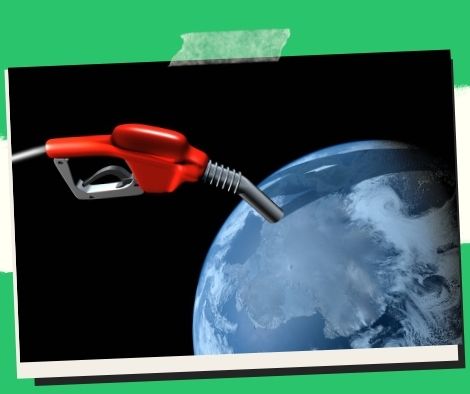
Russian exports of crude oil via sea fell by 9%.
According to Kpler statistics collated by Anadolu, Russia’s seaborne crude oil exports decreased by 9% in the first month of the European Union’s embargo and price cap, dropping to their lowest level in 15 months and well below 3 million barrels per day.
Russian crude oil imports via water as well as the financing and insurance of its transportation to foreign nations, mainly via maritime routes, were outlawed by the EU.
The ban was implemented by the EU on December 5.
The price cap for Russian oil, which was set at $60 per barrel by the EU, the G-7 industrialized nations, and Australia, went into effect that day.
Vladimir Putin, the president of Russia, signed an order on December 27 in reaction to the price ceiling that forbids the delivery of crude oil and oil products to countries that use the cap, beginning on February 1 and lasting for five months.
Russia’s seaborne crude shipments dropped from 3.05 million barrels per day in November to 2.79 million barrels per day in December, a decrease of 266,000 barrels per day in the first month of the EU’s oil embargo and price cap.
India was the largest importer of Russian crude in December with 1.3 million barrels per day, despite the country’s overall seaborne crude shipments declining.
During the same time period, China’s daily seaborne imports of Russian oil remained constant at 950,000 barrels.
Last month, the nations collectively accounted for 82% of Russia’s daily seaborne crude shipments.
According to Neil Crosby, senior analyst at London-based data company OilX, “Russia is exporting more crude oil produced in the Arctic region, Varandey and ARCO crude grades, to China and India after losing out on the customary discharge places in Western Europe.”
Russian crude prices are growing in new Asian markets
Russian crude oil exports are increasing to countries in Asia besides India and China, such as South Korea and Japan, according to data.
South Korea imported 44,725 barrels of seaborne crude oil per day from Russia in the first month of the price restriction, nearly double the 23,500 barrels per day it imported in November.
In December, Japan purchased 22,600 barrels per day, despite not importing any crude oil from Russia since June 2022.
But Italy, one of Europe’s biggest consumers of Russian seaborne crude oil, decreased its imports in December by 71% to 34,000 barrels per day from November.
The Netherlands, another major European consumer of Russian seaborne crude, imported no seaborne crude from Russia in the previous month.
The nation’s daily crude oil imports by sea were 102,835 barrels in November.
According to Kpler, flows are higher than they have previously been because Bulgaria is not participating in the sanctions.
Turkish imports during the same period decreased by 56 percent to 76,500 barrels per day, while Bulgaria imported 160,000 barrels of Russian seaborne crude daily.
Druzhba exports from Russia are also declining
OilX claims that the nation’s crude oil exports performed admirably up until December, despite the sanctions imposed on Russia.
Neil Crosby, the senior analyst at OilX, told Anadolu, “But then we witnessed a decline in exports by about 400,000 a day.”
We anticipate a further decline in the northern Druzhba segment toward Poland and Germany as we approach the first quarter of 2023.
The main oil pipeline from eastern European Russia to Ukraine, Belarus, Poland, Hungary, Slovakia, the Czech Republic, Austria, and Germany is the Druzhba pipeline, also referred to as the Friendship Pipeline.
Beginning on January 1, Germany and Poland agreed to stop importing oil through the pipeline.
Russian crude oil imports from the EU are prohibited, and the oil price is capped, according to a new study from the Centre for Research on Energy and Clean Air (CREA), which estimates that this will cost Russia $171 million ($160 million) each day.
Russia is expected to lose an additional €120 million a day as a result of the EU’s restriction on the import of refined oil and the extension of the price cap to refined oil products, both of which take effect on February 5.
Save/Share this story with QR CODE
Disclaimer
This article is for informational purposes only and does not constitute endorsement of any specific technologies or methodologies and financial advice or endorsement of any specific products or services.
📩 Need to get in touch?
📩 Feel free to Contact NextGenDay.com for comments, suggestions, reviews, or anything else.
We appreciate your reading. 😊Simple Ways To Say Thanks & Support Us:
1.) ❤️GIVE A TIP. Send a small donation thru Paypal😊❤️
Your DONATION will be used to fund and maintain NEXTGENDAY.com
Subscribers in the Philippines can make donations to mobile number 0917 906 3081, thru GCash.
3.) 🛒 BUY or SIGN UP to our AFFILIATE PARTNERS.
4.) 👍 Give this news article a THUMBS UP, and Leave a Comment (at Least Five Words).
AFFILIATE PARTNERS

World Class Nutritional Supplements - Buy Highest Quality Products, Purest Most Healthy Ingredients, Direct to your Door! Up to 90% OFF.
Join LiveGood Today - A company created to satisfy the world's most demanding leaders and entrepreneurs, with the best compensation plan today.



 Business Technology, Finance Technology & Information Technology
Business Technology, Finance Technology & Information Technology





